‘The heart of the Black community.’ Beloved Excelsior Club in Charlotte evokes memories
When Malcolm Graham was a freshman at Johnson C. Smith University in 1981, there was one place and one place only that he and his buddies all went to — the Excelsior Club.
“There was always something happening,” said Graham, who grew up nearby along the West End corridor and is now a city councilman. “It was loud enough to feel the beat, and cozy enough to have a good conversation and network.”
Starting in the mid-1940s, and throughout the decades of segregation and beyond, the Beatties Ford Road club stood as an oasis for Black Charlotte. The Excelsior was Charlotte’s first nightclub exclusively for the Black community.
People went there for drinks and dancing, mingling or talking politics, listening to jazz or other music from whatever band was jamming that night.
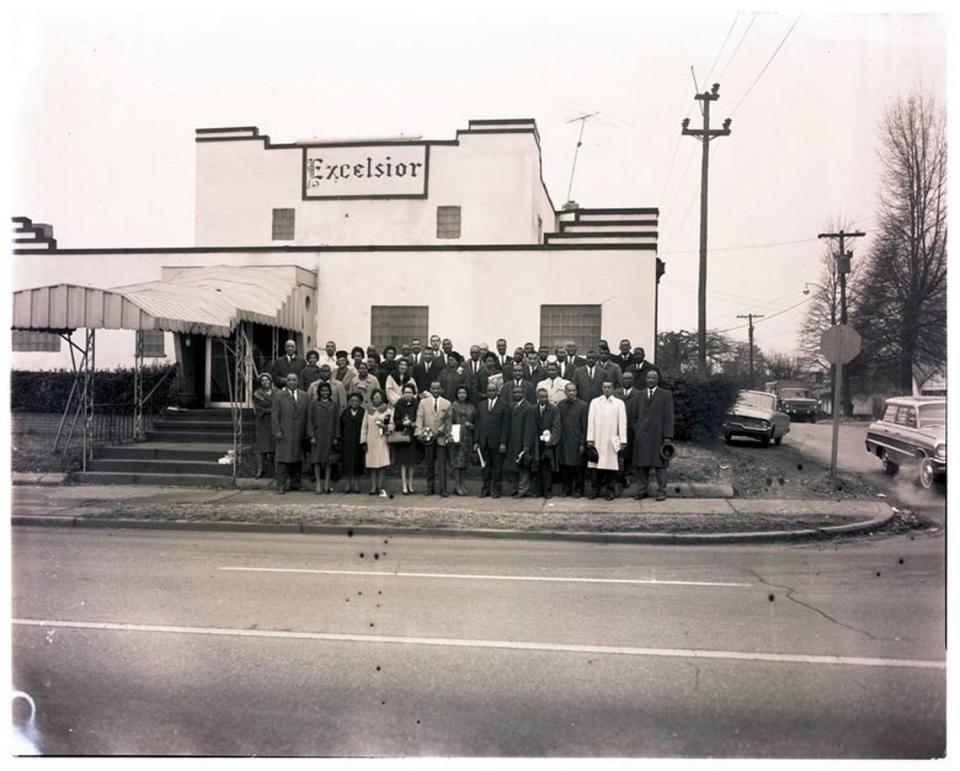
James “Jimmie” McKee and wife Minnie opened Excelsior Club in 1944 while Jim Crow remained pervasive.
“(James McKee) created a private country club atmosphere similar to (what) white folks had that Blacks couldn’t go to,” said Ken Koontz, who co-owned the club from 1984 to 1987.
Excelsior thrived through World War II, the civil rights movement and eventual integration. Legendary musicians like Louis Armstrong and Nat King Cole played there. Local and state politicians made regular appearances. Even former President Bill Clinton stumped there.
The Excelsior Club also was known for Tuesday fish fries and its weekly Dirty Thirty Thursday party, serving as a meeting space for clubs and as a place for families to hold reunions and weddings.
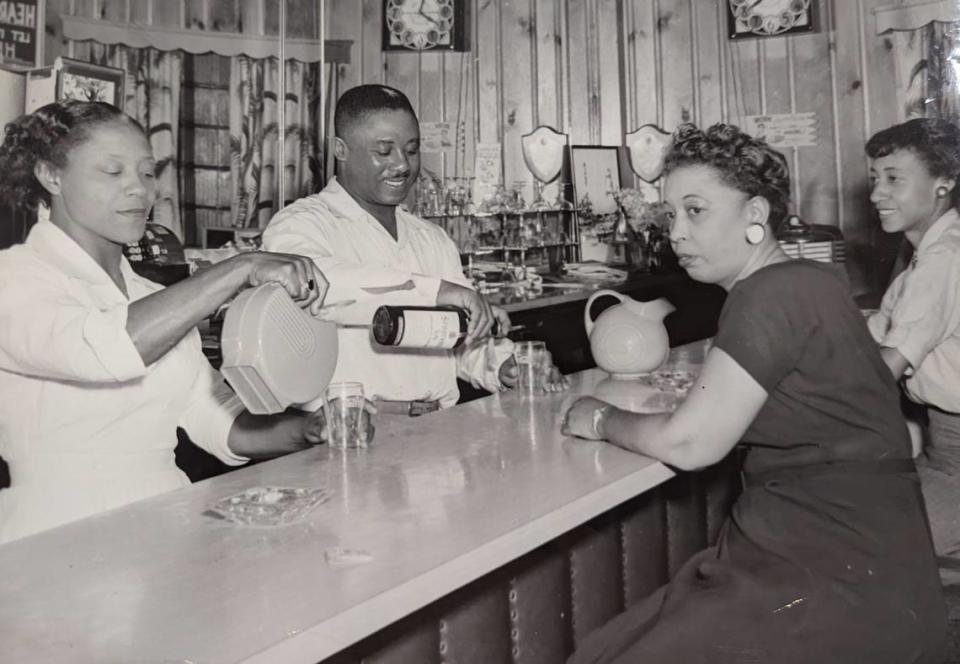
Eventually, fewer people went to the club as opportunities expanded across Charlotte for meeting spaces and entertainment venues. The Excelsior finally closed in 2016, but a new owner has pending plans to revive it.
Koontz said the club’s creed was, “What you see here, stays here.” Fortunately, nearly a dozen Charlotteans were willing to dish about their memories with The Charlotte Observer.
Here’s what they told us:
‘You pray and you play’
A career highlight for Charlotte trumpeter Stanley Graham was playing the Excelsior Club for the first time. The year was 1969 and Graham was all of 18 years old when he was invited to play with a rhythm and blues band.
“Playing there was like The Apollo of Charlotte or Carnegie Hall,” Graham said. “That was one of the premier spots for African-Americans. But we had a multicultural draw even back then.”’
Graham, now 72, said the significance of playing the same venue as a jazz legend like the trumpeter Armstrong wasn’t lost on him. Or the fact that politicians and other Charlotte leaders mingled with the crowd.
“I’m walking these floors in here with some important decision-makers and people who really molded the future of Charlotte,” Graham said, recalling what it felt like to be in the club. “Not to mention the opportunity and importance of music.”
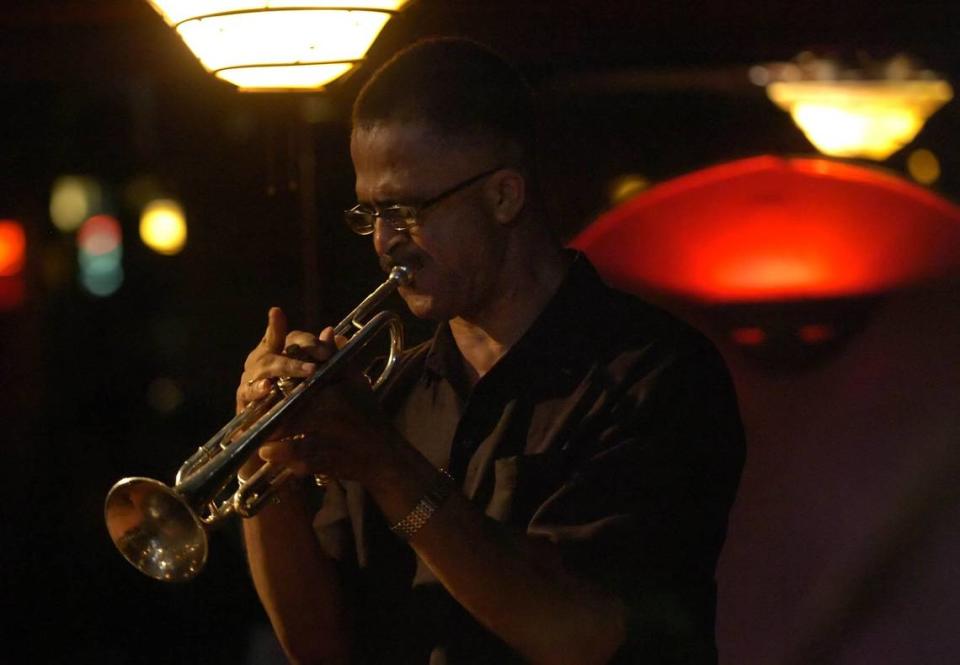
Although Graham played lots of other Charlotte venues, “Excelsior was the place,” he said.
It’s where he saw jazz pianist Don Pullen, who studied nearby at JCSU. And met saxophonist Rudolph ‘Juicy’ Carter, known for playing with The Allman Brothers.
It’s also where he played with jazz musician John “Chief” Holloway, a former long-time band director at West Charlotte High.
“I was nervous as I could be, but you pray and you play,” Graham said. “Playing with Chief was the most memorable (time), but I couldn’t enjoy it because I was so nervous.” He recalled sweating, his body tensing as he heard people milling about the crowded club in conversations.
Graham played with other bands, and at weddings and parties, for over 50 years at Excelsior until it closed. “It was a hard break. I was disappointed and didn’t see it coming.”
But Graham remains in awe of the old club.
“I got my inspiration there,” he said. “Without Excelsior, I wouldn’t have been the musician I am.”
‘Please, Please, Please’
Tommie Robinson became a member of Excelsior in the 1970s. At that time membership was exclusive to “upper-class Blacks,” he said, like the African-American version of a white country club.
Robinson was invited because he was a rising artist.
“As a Black kid on Brooklyn Avenue, I always wanted to be in a position to get in,” the 77-year-old said. “You couldn’t be a working man and belong to the Excelsior. It was a status symbol.”
‘Timelessly relevant.’ Artist Tommie Robinson’s 50-year legacy in Charlotte.
For Robinson, the club was a place to grab a drink and network with doctors, lawyers and other professionals to sell his artwork.
But he also saw musicians like Texas soul singer Joe Tex there.
Black entertainers weren’t allowed to sit and drink or eat at Charlotte’s white venues. So they’d put on another show for the Black community, one that usually wasn’t ticketed or advertised. In Charlotte, that place was the Excelsior.
“Even though they were big entertainers, they had to go to a Black establishment,” Robinson said. “They’d just be sitting at the club and socializing. Then they’d call them up.”
That’s how he saw the Godfather of Soul himself, James Brown, sometime in the 1970s. Robinson was sitting at Excelsior’s bar when Brown took the stage and began belting out “Please, Please, Please.”
“It wasn’t no big deal,” Robinson said, “because that was a common thing.”
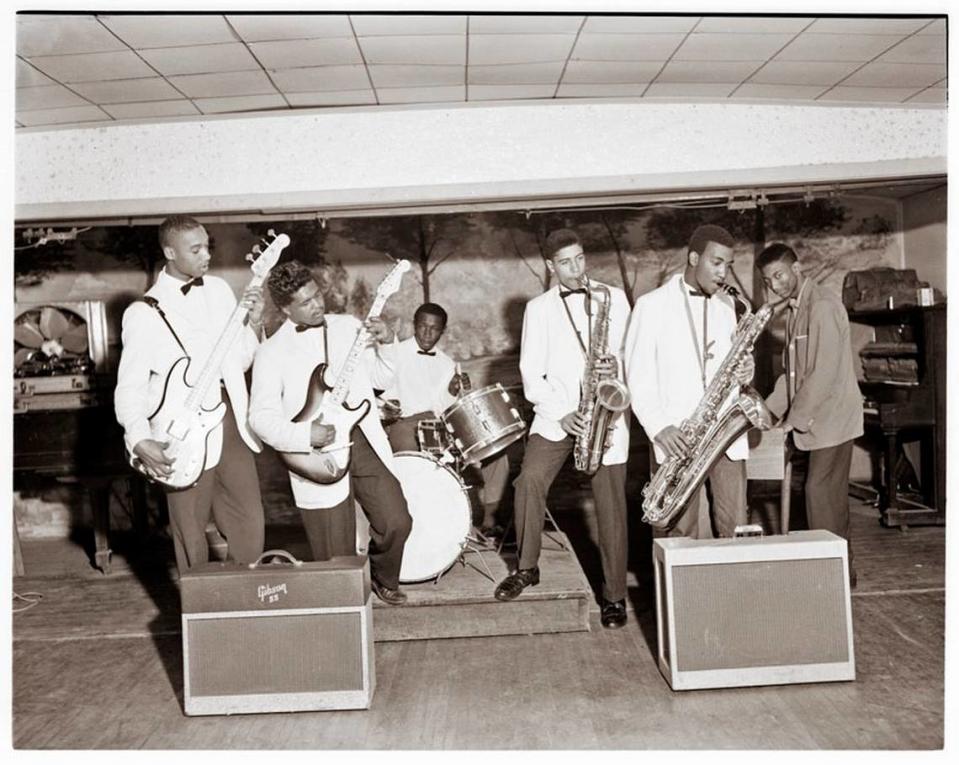
‘Ability to attract politics’
Excelsior also was a political hub.
Harvey Gantt, elected to Charlotte city council in 1974 and who was the city’s first Black mayor in 1983, credits the club and fundraisers held on his behalf with making both election wins happen.
“There were people who I got to know because of the opportunity to go to political, grassroots events there,” the 81-year-old said.
For any candidate running for office, “it was a huge mistake if you didn’t drop in,” Gantt said. “Jimmy McKee was very respected and he had an ability to attract politics.”
Gantt opened his Charlotte architecture firm in 1971 and became a regular at Excelsior.
“That was the place to be if you wanted to meet the movers and shakers in politics in Charlotte,” he said. “But to be fair, it was the singular place because the Black community didn’t have another place like that.”
‘A place of pride’
When he was home from the Coast Guard, John “Ervin” Williams was one of the Excelsior Club’s DJs in the 1980s. His brother Clarence Williams was a manager.
“It was something I always wanted to do,” Williams said.
He would start with jazz, then transition to dance music. Men and women always dressed up. There were no jeans or sneakers or athletic wear.
“It was a place of pride,” said Williams, who also visited the club for family reunions and Christmas parties. “It began as a place of safety for Black folk that could talk about social events and issues in a safe environment, and morphed into a club and dance bar.”
Williams, who now lives in Virginia Beach, Virginia, said he’d stop in because he knew he’d always see old friends there. “It was the only club that I would go to because I felt safe in there,” he said. “I hate the building is ending this way because the Excelsior was a serious giant in that Black community.”
He also missed the food. “I don’t think I’ve ever had better fried fish or wings,” the 77-year-old said.
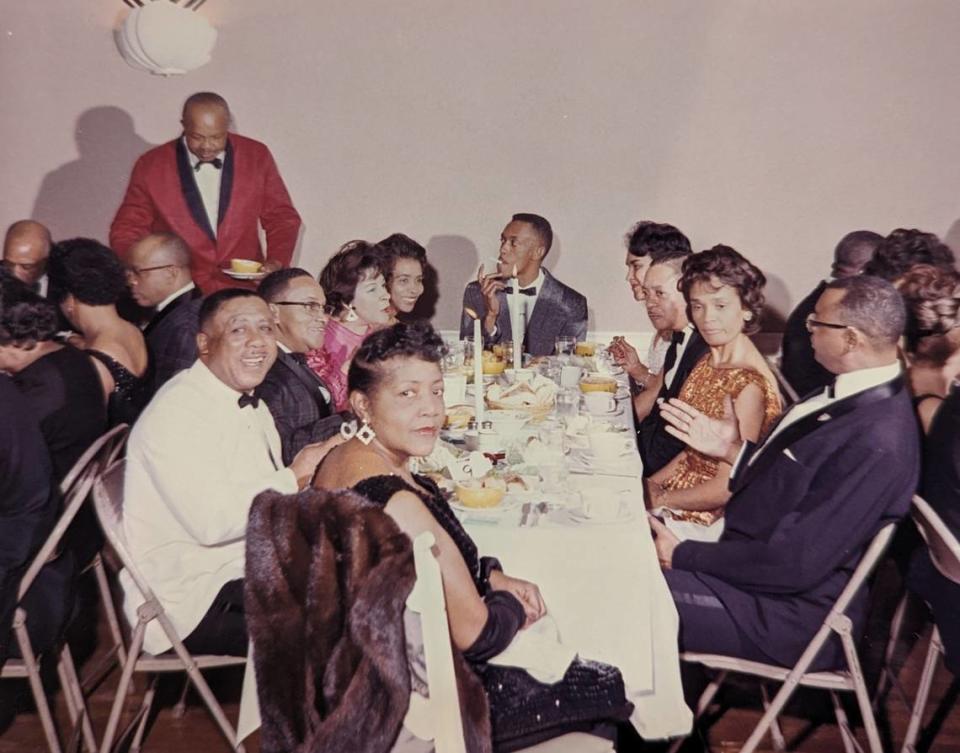
‘Heart of the Black community’
Colette Forrest will tell you that she loves all things political. When she moved to Wesley Heights in 1997, she quickly became acquainted with Excelsior Club.
“It didn’t matter when I drove by, the line was already around the building,” she said. “It was the heart of the Black community. There is nothing else like it.”
Along with music and themed nights, Excelsior was pivotal to local politics. “It was about partying but it did a great job of balancing the two,” Forrest said.
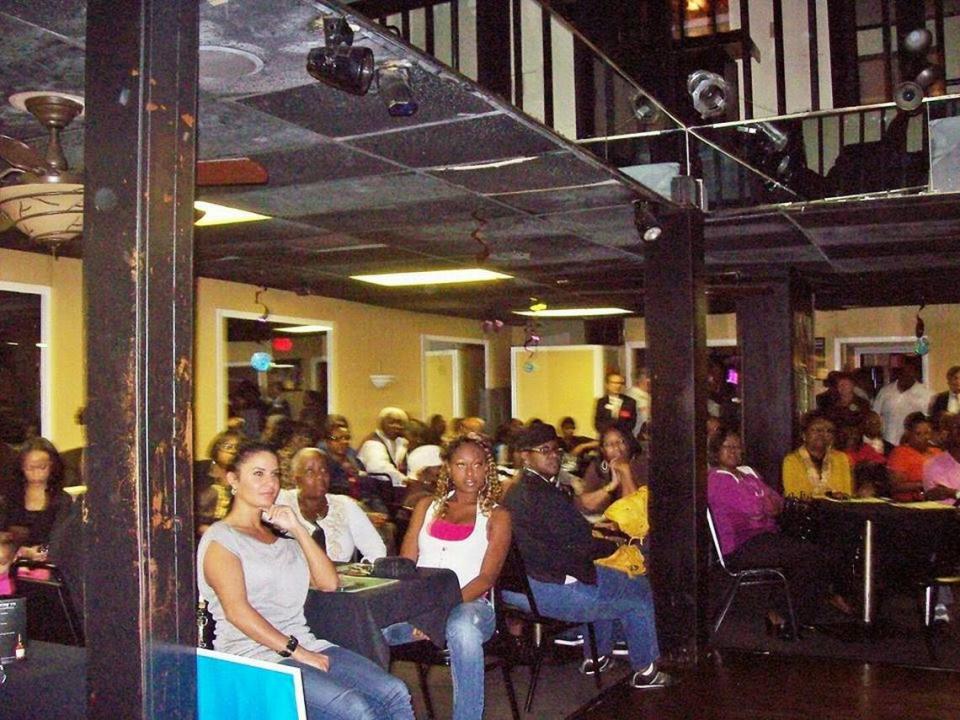
Forest said she met politicians like former mayor Jennifer Roberts and county commissioner Pat Cotham there.
“We are really missing Excelsior right now. Our black voter participation is so down,” Forrest said. “Excelsior was a part of helping to get our numbers up.”
‘Fun times and memories’
Another popular draw for the club was its food.
On Sundays in the late 1990s and early 2000s, Excelsior bartender Michael Reed made the potato salad for the club, and his wife, Audrey Johnson, would help out too.
How Excelsior Club became a hub for Charlotte’s Black community over the years
“The way he did it was different, creating a more consistent base to stick together, mixed with mayo,” she said. “Every weekend he worked, we made the potato salad.”
Johnson also went to the club to play cards, to dance and to hear R&B bands.
“It stayed packed but if you wanted to get away, you could go to the balcony, where there was another bar and chairs,” Johnson said. “It was fun times and memories to keep with me for the rest of my life.”
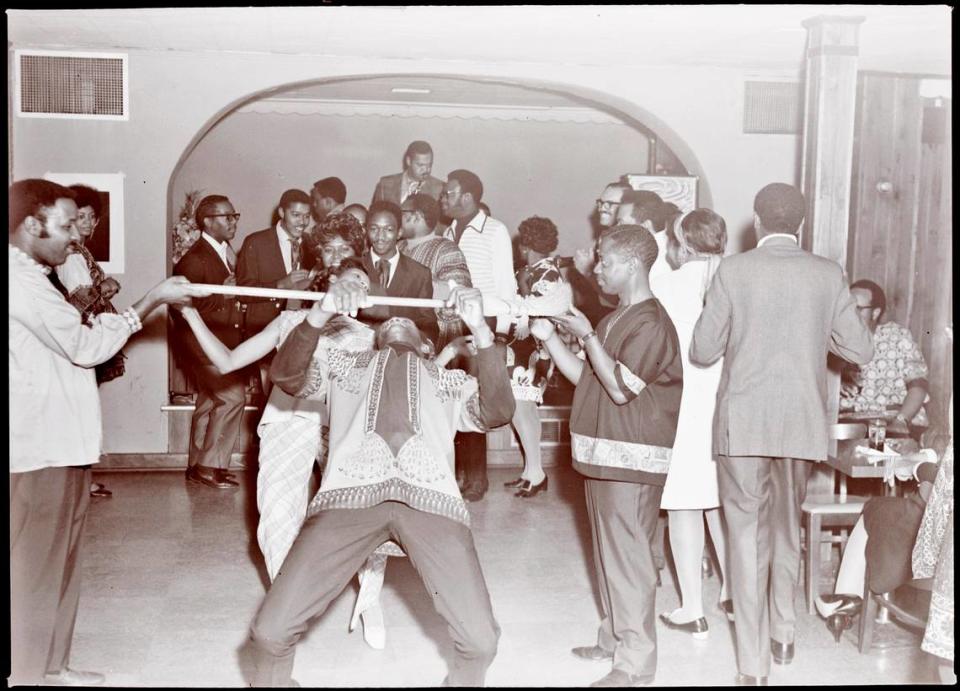
‘Just a big party’
While bands continued to play at the club, DJs became a staple in Excelsior’s later years.
One of the most popular nights was Dirty Thirty Thursday. That was radio station V101.9’s weekly dance event for 15 years. And Bea Thompson was the host.
The idea was to promote the station and draw more people to the club. “It was just a big party,” Thompson said.
She also talked about Robin Thicke performing at the club a few years before “Blurred Lines” topped the charts in 2013. “He took pictures with all the women,” she said, although Thompson did not ask for one.
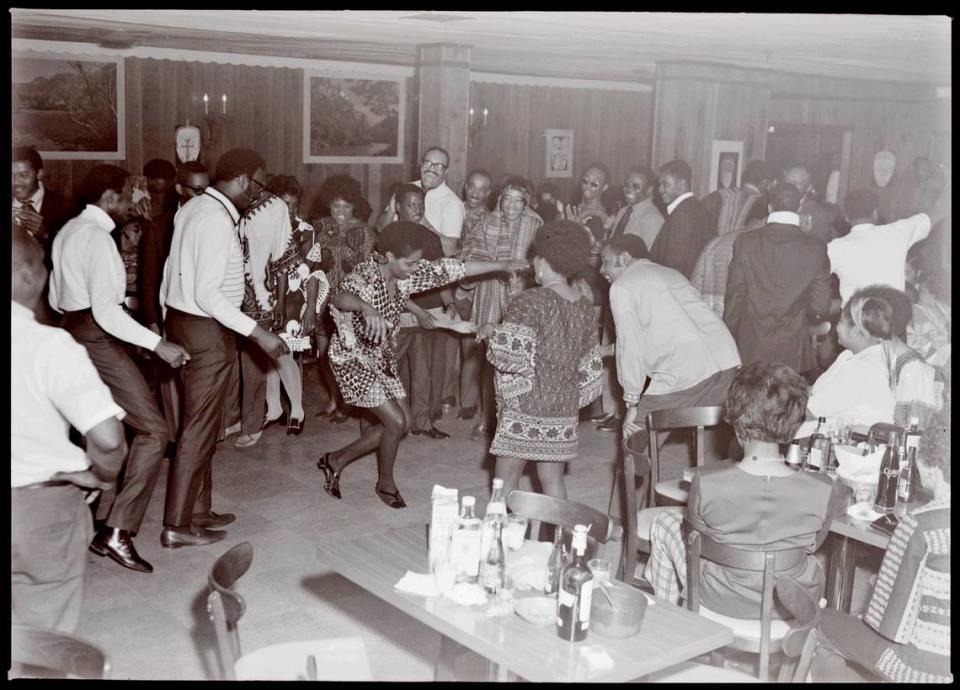
When Thompson was a kid, she thought Excelsior was a funeral home because of its long front awning. At that time, it was still exclusive. “Anybody just didn’t get in,” she said.
The club had a large room downstairs with a dance floor and bar, plus two banquet and meeting rooms with capacity for 300 people.
The club’s closing felt abrupt to Thompson. “I found out that it was closing the last night I did Dirty there,” she said. It closed the next day.
‘At least we were able to experience it’
Musician Stanley Graham’s son, Odell, performed at Excelsior, too.
In 2003, Odell Graham played trumpet in the five-member band Afro Jazziacts. He remembers the first night he played there at age 25. “It seemed like a scene from an old movie,” the 45-year-old recalled. It was dark and crowded, and the smell of fried chicken wafted through the air.
Odell Graham, who grew up on the historic West End, looked out at lots of familiar faces.
“At the time I didn’t really understand the significance” of Excelsior, he said. “It was one of those places, more of a relic. So it wasn’t a nice venue but it had one of the best vibes I’ve ever played at.”
One time when he stepped in to play trumpet, keyboardist Joe Priester helped quell his nerves by yelling out Odell’s name, saying, “I’m diggin’ what you’re doing there.”
Now a lawyer, Odell Graham still plays with a wedding band, does studio work and has helped with his father’s albums.
“It’s still to this day over my head,” Odell Graham said of playing at Excelsior. “At least we were able to experience it.”
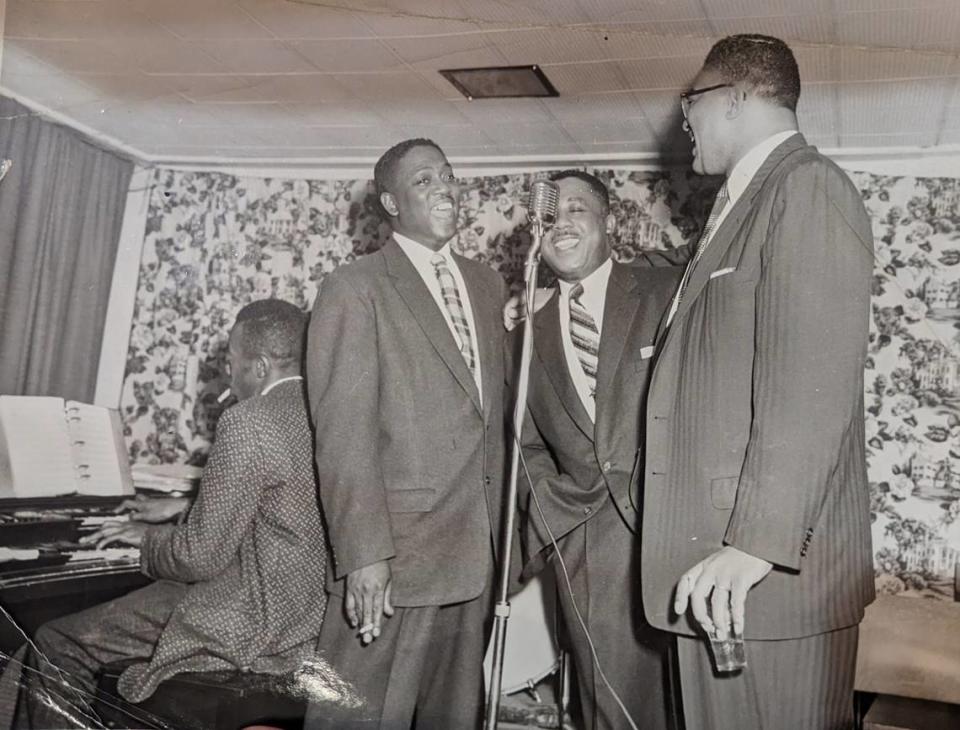
‘All walks of life ended up there’
Corine Mack discovered Excelsior in 2006 after moving here from New York and joining the NAACP. “At that time, it wasn’t the most beautiful place, but you felt welcome,” the 66-year-old said.
The club became her weekly go-to on fish night for years. “They had the best croaker. I also loved their coleslaw.
“There was music there but I went for the fish. I was so involved with my fish I didn’t know what they sang.”
As community liaison chair for the NAACP, Mack found Excelsior to be a great place to meet people. “All walks of life ended up there,” she said. “That’s the beauty of it. Whatever else was going on when you entered that room, there was togetherness.”
Now president of Charlotte Mecklenburg NAACP President, Mack said, “I don’t know where else we can go now.”
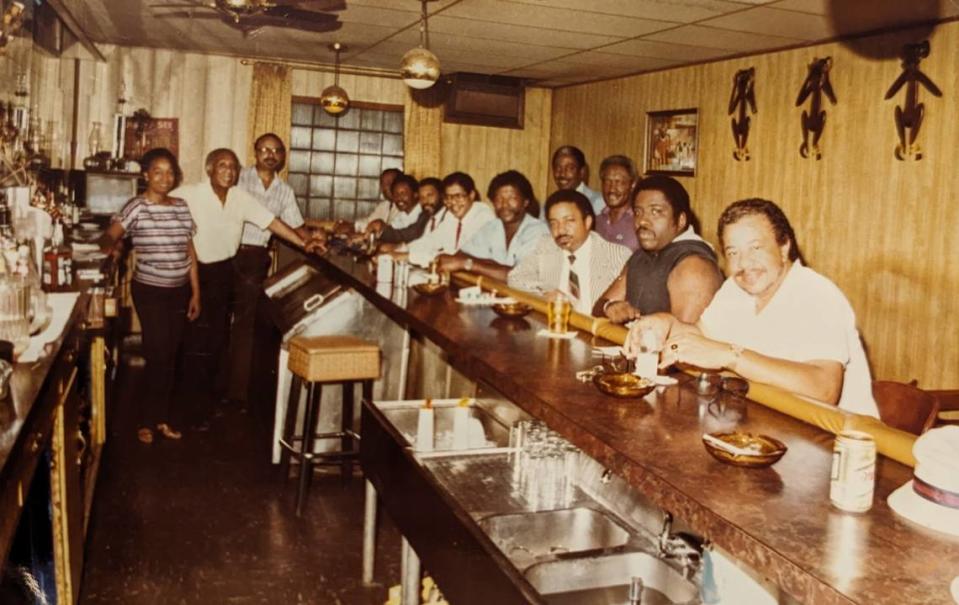
‘A part of history’
Charlotte native Gilda Mack-Benton didn’t go to Excelsior until her late 30s.
On Jan. 20, 2009, despite several inches of snow, Mack-Benton set out to be among the first in line when the club opened at 10 a.m., two hours before the inaugural ceremony for Barack Obama.
“I didn’t want to miss it,” Mack-Benton said. “I wanted to be around other people.”
The Excelsior set up tables and chairs facing a wide-screen TV in the DJ’s spot. Despite being packed, the club fell silent during the ceremony. “Everyone focused on every single word.”
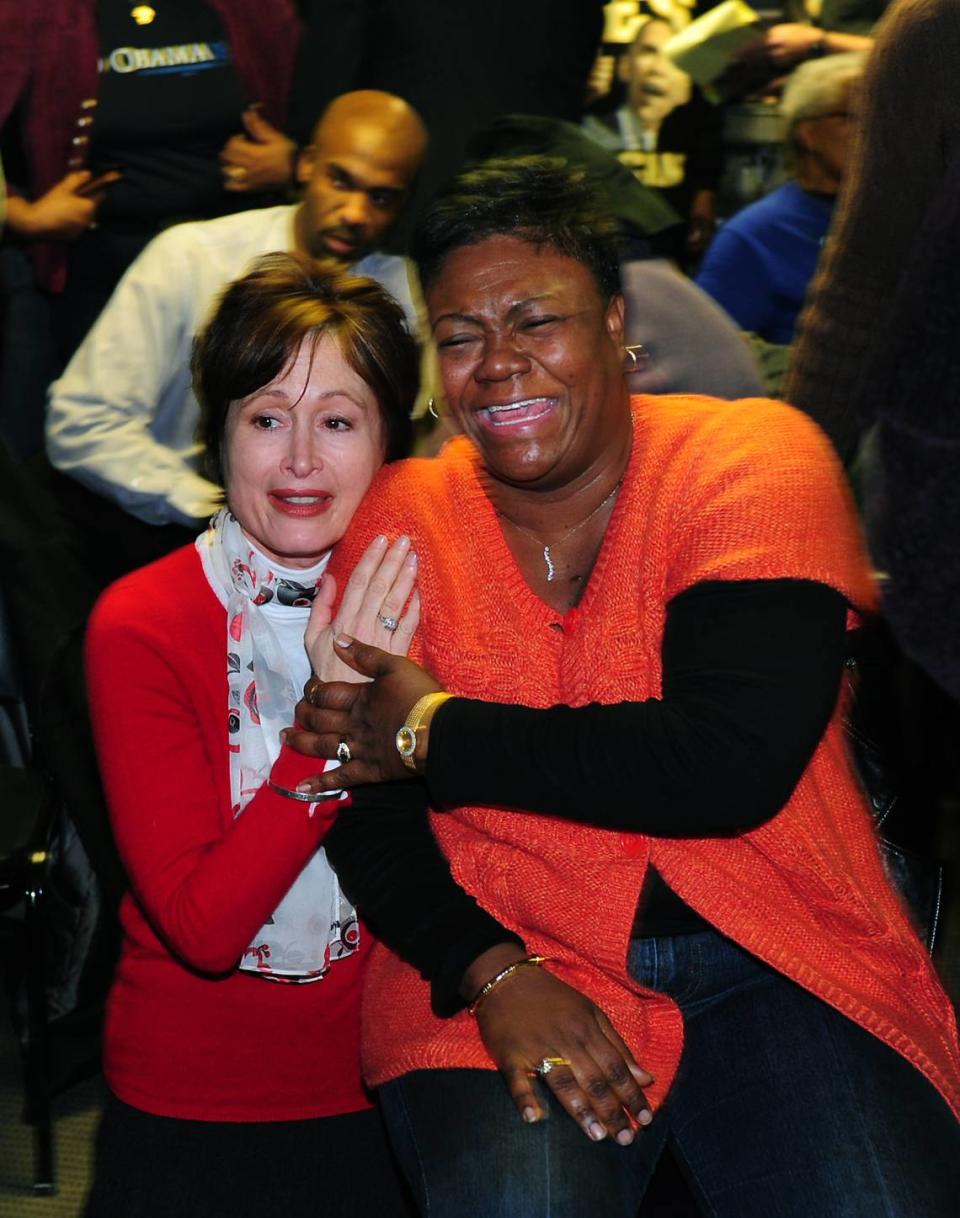
Mack-Benton’s emotions bubbled into tears as a stranger named Kim Austin put her arm around her, a moment captured by a Charlotte Observer photographer.
“It was just so emotional,” she said. “I can’t even put words to what this day meant. It was a day me, my mother and grandmother never thought would happen in our lifetime.”
A Black president.
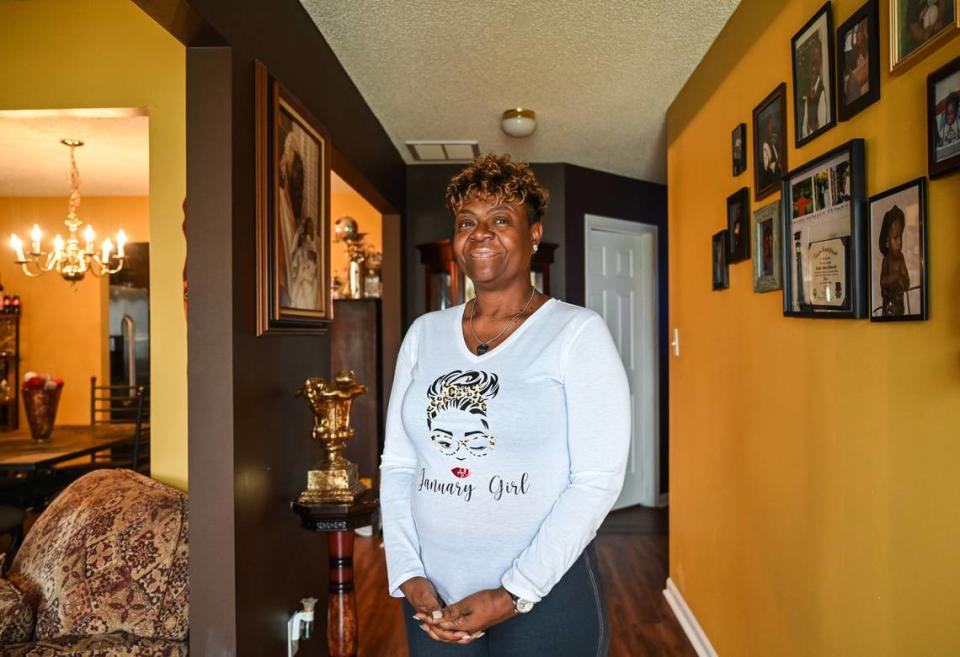
“I was so proud, just proud that that was happening.”
Although there were other places to watch the inauguration, Mack-Benton chose Excelsior because of its legacy in the Black community. “I felt,” she said, “like I was a part of history.”

